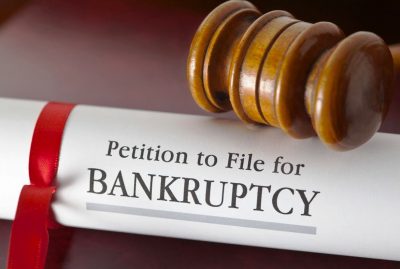- Lemberg Law
- Bankruptcy Law: Terms And Definitions
- FAQ About Bankruptcy
- How to File Chapter 7 Bankruptcy
To file Chapter 7 bankruptcy, you must first earn a certificate by attending credit counseling. Then, you can file a bankruptcy petition – typically more than 50 pages – with the federal Bankruptcy Court that has jurisdiction in the area where you live.

Mandatory Credit Counseling
The Chapter 7 bankruptcy process requires that, prior to filing, you participate in a court-approved credit counseling program. There are a variety of programs – from in-person to online – that are approved by the U.S. Justice Department. The certificate you receive when you complete credit counseling becomes an integral part of your bankruptcy petition.
The Chapter 7 Petition
The Chapter 7 bankruptcy process begins with filing a petition. There are state courts and federal courts. Because bankruptcy is a federal law, the federal government has jurisdiction over bankruptcy proceedings. The federal court system has a number of different types of courts, such as district courts, appellate courts, and – of course – the U.S. Supreme Court. Bankruptcy courts are a special kind of federal court in that they only deal with bankruptcies. There are 90 bankruptcy courts in the U.S.
The Chapter 7 petition that you file in Bankruptcy Court is actually an entire packet of forms. These include the actual petition form (Form 101), and a summary of your assets and liabilities (Form 106). Form 106 is supported by at least eight schedules that dive deeply into your financial world. The more than two dozen pages included in the schedules ask you about every asset and expense, every creditor, every contract, and every bit of your income.
In addition, Chapter 7 filers must include:
Statement of Financial Affairs (Form 107): This 12-page form asks you about your marital status, previous residences, and details about the sources of your income. It also requires you to disclose any payments you made to creditors in the previous 90 days that totaled $600 or more. The form also asks a variety of questions about activities that took place within a year or two of filing for Chapter 7 bankruptcy. For example, it asks about payments you made to relatives and business partners; transfers of property; lawsuits to which you were a party; and gifts or charitable contributions you gave valued at $600 or more. It also asks about theft, fire, and gambling losses; movement of funds and assets; safe deposit boxes and storage units; and whether you’re a party to any actions involving environmental law. If you have or had a business, you’ll also need to disclose that on Form 107.
Statement of Intention (Form 108): This two-page form asks you about secured debts (like car loans and mortgages) and unexpired leases. You need to tell the court what you intend to do with the property – surrender it or retain it – and whether you’re claiming the property as exempt from liquidation.
Currently Monthly Income (Form 122A-1): A two-page form that requires you to disclose your average income in the previous six months. This includes everything from wages and business income to unemployment and retirement income. You then multiply that amount by 12 and compare it to the median income for your state based on the size of your household. If your income is equal to or less than the median income, you are eligible to file for Chapter 7 bankruptcy. If it exceeds the median income, then you are required to complete additional forms.
What’s next?
Filing Chapter 7 bankruptcy is not a DIY project. Relying on the skill of an experienced bankruptcy attorney will help ensure that the process goes smoothly and is as painless as possible. Lemberg Law has a team devoted to representing clients who pursue bankruptcy as a way to resolve their debts. Call 844-685-9200 and receive a free consultation, or submit our online request form.
Have questions? Call us now at 855-301-2100 for a Free Case Evaluation.
Our services are absolutely FREE to you.
The harassing company pays our fees.